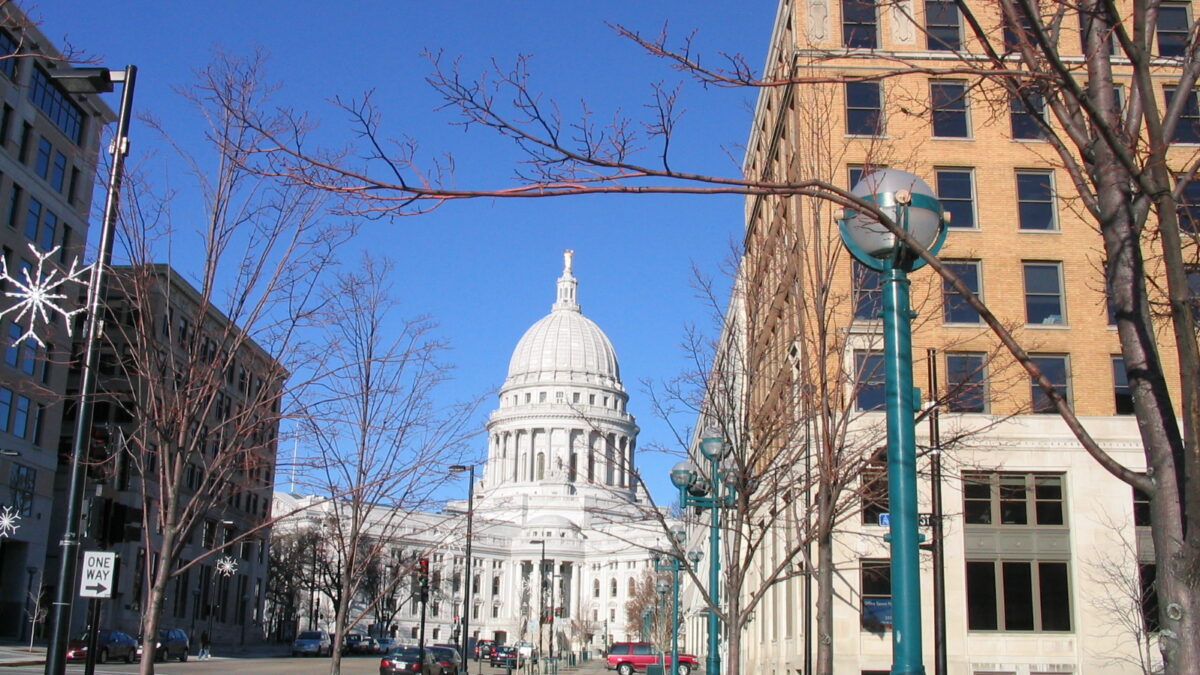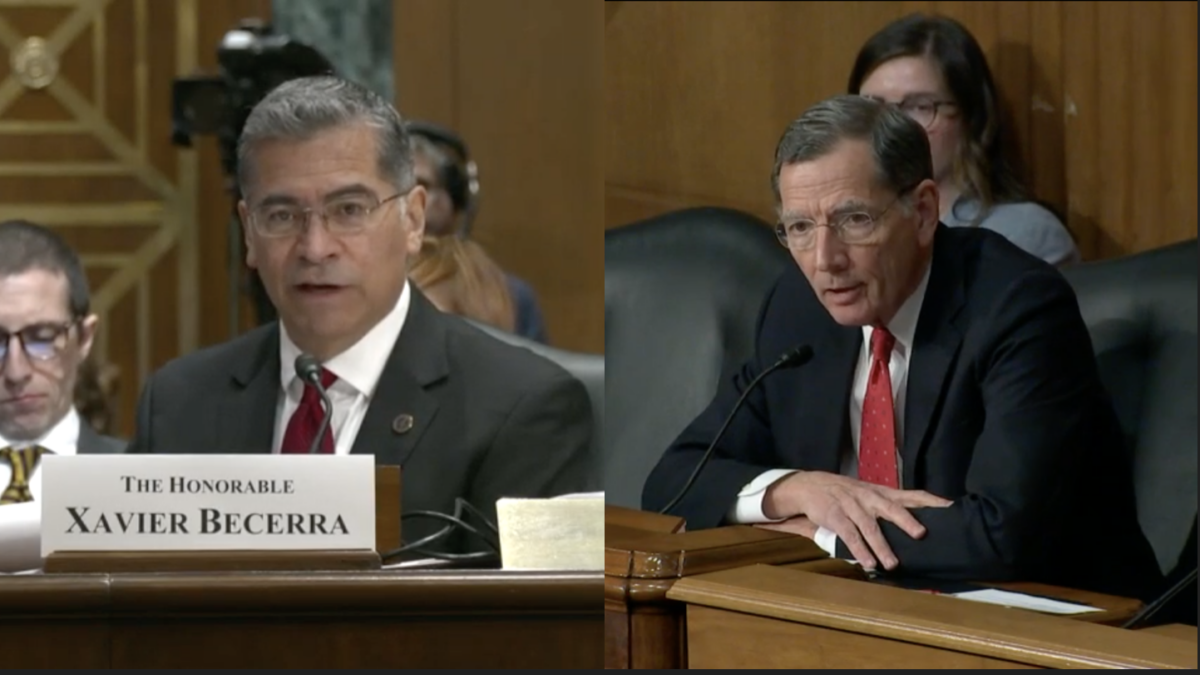
Attorney General Jeff Sessions’ announcement on Tuesday that the Obama-era Deferred Action for Childhood Arrivals program was unconstitutional and thus being “rescinded” has caused a huge uproar. The Trump administration was immediately labeled as lacking compassion and being anti-immigrant.
The critics of the administration’s announcement seem to forget two things: first, rescinding DACA doesn’t means all DACA beneficiaries are subject to deportation immediately; second and more importantly, DACA is not the right solution for children whose parents brought them to the United States illegally.
Let’s first remind ourselves of what DACA is. In June 2012, President Obama announced an executive action—The Deferred Action for Childhood Arrivals (DACA) program—which gave temporary relief to 1.5 million children who are already in the United States illegally. To be eligible for DACA, applicants had to have arrived in the United States before age 16 and have lived in the United States since June 15, 2007. They could not have been older than 30 when the Department of Homeland Security implemented the policy in 2012.
DACA allows those who meet these criteria to apply to defer deportation and legally reside in the United States for merely two years. Only during these two years, DACA recipients can legally obtain driver’s licenses, enroll in college, and work. After that, they could apply for a two-year renewal as long as they don’t have a criminal record.
There you have it. DACA is not a path to legal residency or U.S. citizenship. It’s only a temporary solution. It’s no different than putting a small Band-Aid on a large wound (our broken immigration system). It’s not the right solution for these children. No one can live a productive and meaningful life if he or she has to plan it in two-year increments. Even DACA supporters recognize we need a more permanent solution for these kids.
DACA Incentivized Dangerous Activity
Another dark aspect of DACA its supporters don’t want to talk about is how the existence of this program has become a magnet to increase illegal border crossings by under-aged children. U.S. Border Patrol data show that after DACA passed in June 2012, there was a well-publicized surge of unaccompanied minors and families illegally crossing the U.S.-Mexico border. Most of these minors were from Central American countries such as El Salvador, Guatemala, and Honduras.
The Obama administration and media characterized the surge as the result of worsening criminal activities in Central America, but that’s not the truth. Many of these minors and family units were invited to cross the border by their families and relatives who were already in the United States. That is why The New York Times reported that many minors who were apprehended at the border were eventually “reunited with their families” in the United States.
Consequently, “many Central Americans were left with the perception that the United States was allowing children to stay.” This unprecedented surge continued in 2013 and 2014. During the summer of 2014, the U.S. Border Patrol caught as many as 10,000 illegal immigrants per month.
Undeterred by the unintended consequences of DACA, in November 2014, President Obama not only expanded it but also issued another executive action that shielded U.S. citizens’ or legal residents’ illegal immigrant parents from deportation and allowed them to work legally through Deferred Action for Parents of Americans (DAPA). Predictably, illegal crossings rose in 2015. In October and November, the U.S. Border Patrol apprehended 12,000 illegal immigrants traveling as family units.
According to U.S. Border Patrol interviews reported by The Wall Street Journal, of these illegal immigrants, “the vast majority of the family units interviewed heard that if they came to the U.S. they would be allowed to stay. And in fact, most of those interviewed stated that it was the U.S. government’s policies that influenced their decision to come to the U.S. in the first place.”
The Border Patrol also found that “68% of the illegal immigrants interviewed believed that the U.S. was offering some form of either asylum or amnesty.” Federal agents found that 64 percent of the individuals interviewed believed that the United States was “granting work permits to those who arrived as a family” under DACA and DAPA.
DACA supporters argue that ending DACA is “cruel.” But let’s talk honestly about what these children had to endure to get to the United States. Their journeys were often dangerous, even life-threatening. Many were exposed to severe weather while crossing the desert, where it is hot during the day and cold at night. They put themselves at risk for dehydration, heat stroke, and hypothermia.
But nature has more mercy on these children than criminals. Many children suffered physical or sexual abuse at the hands of coyotes. Is this compassionate that our policy enticed many more children and young adults to take on a very dangerous journey to cross the border illegally?
We Need a Permanent Solution
The Trump administration rescinded DACA on a legal basis, but it never ordered the deportation of DACA recipients. Instead, the administration has asked Congress to come up with legislation to offer these kids a more permanent solution, which is the right thing to do.
Here’s what Congress should do: grant student visas to the illegal immigrants currently going to school. The length of the visa should match the years remaining for them to get a degree. Grant work visas to illegal immigrants who have jobs and no criminal record. The length of the visa should match their employment contract or a minimum of five years.
Neither student visas nor work visas are immigrant visas, but they will let these kids continue whatever they’re doing without interruption. They can renew their visas as long as they don’t commit any crime and they continue to go to school or work. If they desire to become permanent residents of the United States, they can apply for it, following the paths that 30 million legal immigrants have been following for years: through family reunion, employment, and other existing legal channels.
Congress should not create a special path to citizenship for these children. It’s a fairness issue. Keep in mind that the 30 million legal immigrants in the United States and the four million applicants who are currently in the process outside the United States didn’t get any relief even though they dutifully followed the law, paid hefty fees, and endured long waits, sometimes decades long.
To add insult to injury, legal applicants for citizenship were pushed further down the line to make room for illegal immigrants. For example, as of January 2015, the U.S. Justice Department delayed thousands of immigrants’ court hearings for five years to make room for the courts to process unaccompanied minors and family unit cases. If Congress offers a special path to citizenship for illegal immigrants, it sends the wrong message to law-abiding legal immigrants that there is no punishment for violating and no reward for obeying the law in the United States
DACA is not the right solution for children who were brought here illegally. The right solution is for Congress to pass a common-sense legislation, that doesn’t give them special privileges, as soon as possible.








